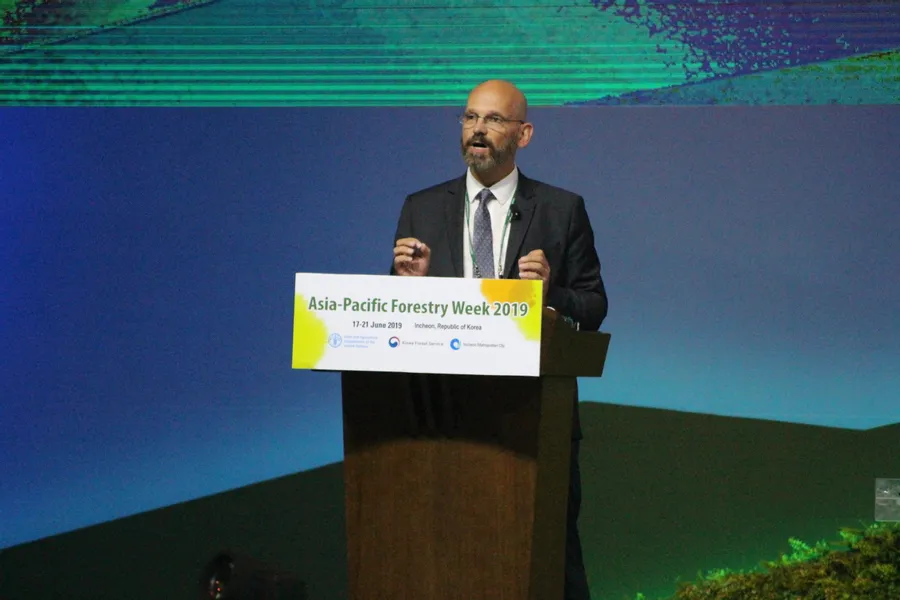Forest certification: it’s about collaboration for peace and well-being
Ben Gunneberg, PEFC CEO, speaks at Asia-Pacific Forestry Week, highlighting the true value of certification and its indirect benefits.
Forest certification: it’s about collaboration for peace and well-being
18 June 2019 Event report
“I fear the majority of us do not understand the true value of certification,” said Ben Gunneberg, speaking at Asia-Pacific Forestry Week (APFW).
“We understand that forest certification is a tool to demonstrate sustainable forest management. We also understand that certification delivers products originating in sustainable forests to the marketplace.”

“These are the direct, known benefits. But it is the lesser known, indirect benefits of forest certification which contribute to our well-being, better collaboration and ultimately, peace.”
Ben was speaking on the panel of the first APFW plenary session earlier today, focused on forests for peace and well-being. APFW2019 is set to be one of the largest and most important forestry gatherings in the Asia-Pacific region in 2019.
Indirect benefits of forest certification
Forest certification gets people together to talk, challenge each other, explore and find solutions for problems at all levels - locally, regionally, nationally and internationally. It can also help to pull people out of poverty by giving new income generation opportunities.
It contributes to all the UN Sustainable Development Goals (SDGs) by bringing together hundreds of thousands of people to engage in constructive, consensus-building dialogue for local, national and international problems at landscape level.
Certification builds trust and confidence between different interests through consensus and conflict resolution processes, which are the basis for ensuring and maintaining peace at all levels.
“Take a look at Indonesia. The indirect benefits of seeking sustainable solutions for rural communities has enabled communities to cultivate a range of non-wood forest products for food security and community welfare,” Ben highlighted.
“There has also been a 95% reduction of the areas burned by smallholders, because companies gave them agricultural machinery to prepare the land. This has reduced respiratory disease in children and the elderly, and improved urban neighbourhoods in Singapore who were suffering from the haze.”
Forest certification: it’s about collaboration of people
Forest certification is about co-operation for practical, implementable solutions at all levels, and about partnerships through local dialogue between communities and interests. It is also about well-being, from fair wages to gender equality, as well as capacity building, education and training for sustainable livelihoods.
“Forest certification is more than just sustainable forest management,” Ben concluded. “It’s about collaboration of people to enable ongoing dialogue, conflict resolution and problem solving at all levels for peace.”
